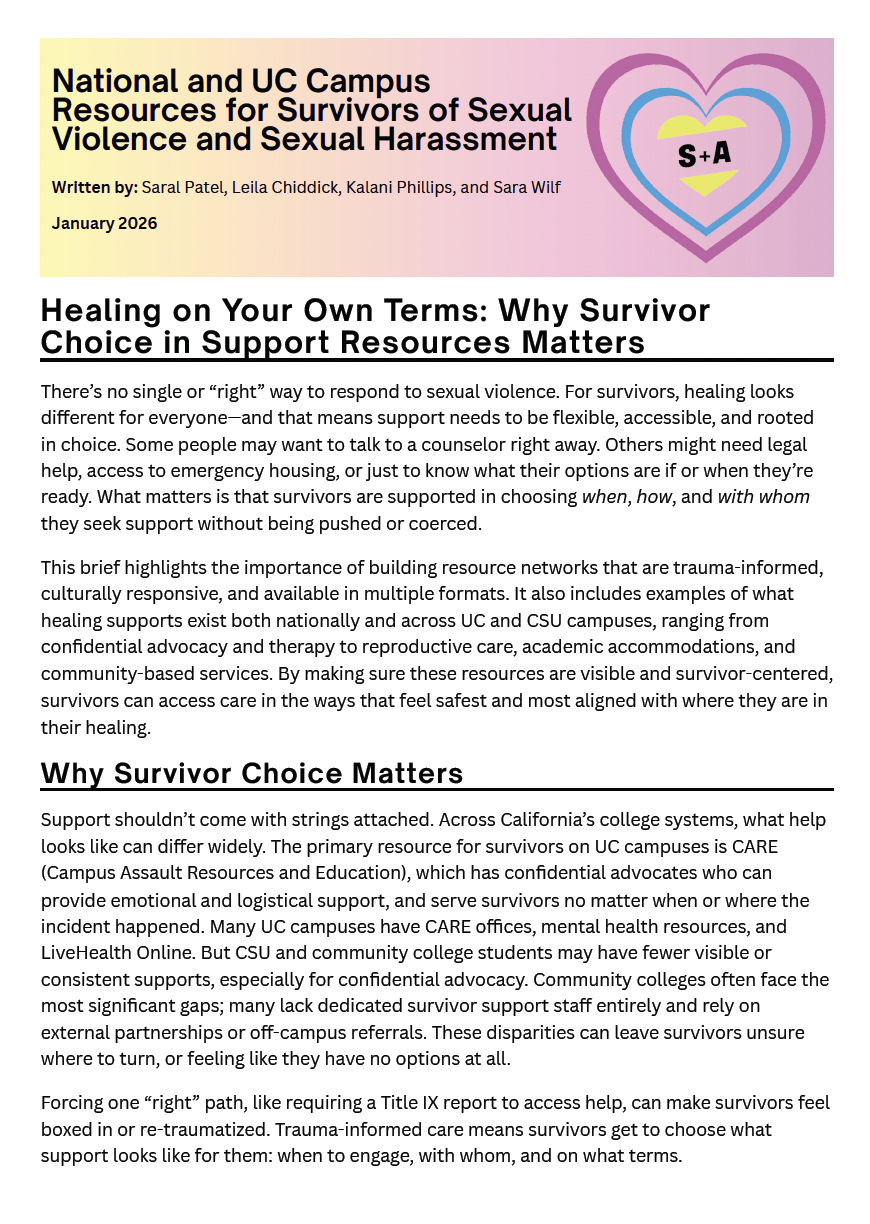Research Briefs
Survivors + Allies is using our research study of survivors across all 10 UC campuses to produce short research briefs on important topics we identified in our data. Briefs might highlight unique needs of certain student groups, such as International students, or the importance of certain practices, such as trauma-informed training. These briefs were produced in collaboration with Survivors + Allies members.
Current Briefs
Healing on Your Own Terms: Why Survivor Choice in Support Resources Matters
January 2026
This research brief underscores that healing after sexual violence is not linear and must be guided by survivor choice, agency, and access to trauma-informed, culturally responsive support. It argues that survivors should be able to choose when, how, and with whom they seek care—without being forced into reporting pathways like Title IX—and highlights the central role of confidential advocacy, particularly on UC campuses through CARE, as the most affirming form of support. Drawing on research and survivor testimony, the brief documents stark inequities across UC, CSU, and community college systems, where access to confidential, visible, and identity-affirming resources varies widely, leaving many survivors unsure where to turn. It defines key concepts such as consent, confidentiality, trauma-informed care, reproductive justice, and gender-affirming care, while mapping extensive national, regional, and campus-based resources. Ultimately, the brief calls on institutions to expand confidential advocacy, fund culturally and linguistically responsive services, integrate survivor resources into everyday student life, and ensure equitable access across campuses—affirming that healing becomes possible when survivors are supported on their own terms.
 Graduate Student Experiences & Perceptions of the Title IX Office at the UC
Graduate Student Experiences & Perceptions of the Title IX Office at the UC
May 2025
 Comparing confidential and non-confidential resources for UC survivors of sexual violence & sexual harassment (SVSH)
Comparing confidential and non-confidential resources for UC survivors of sexual violence & sexual harassment (SVSH)
December 2024


